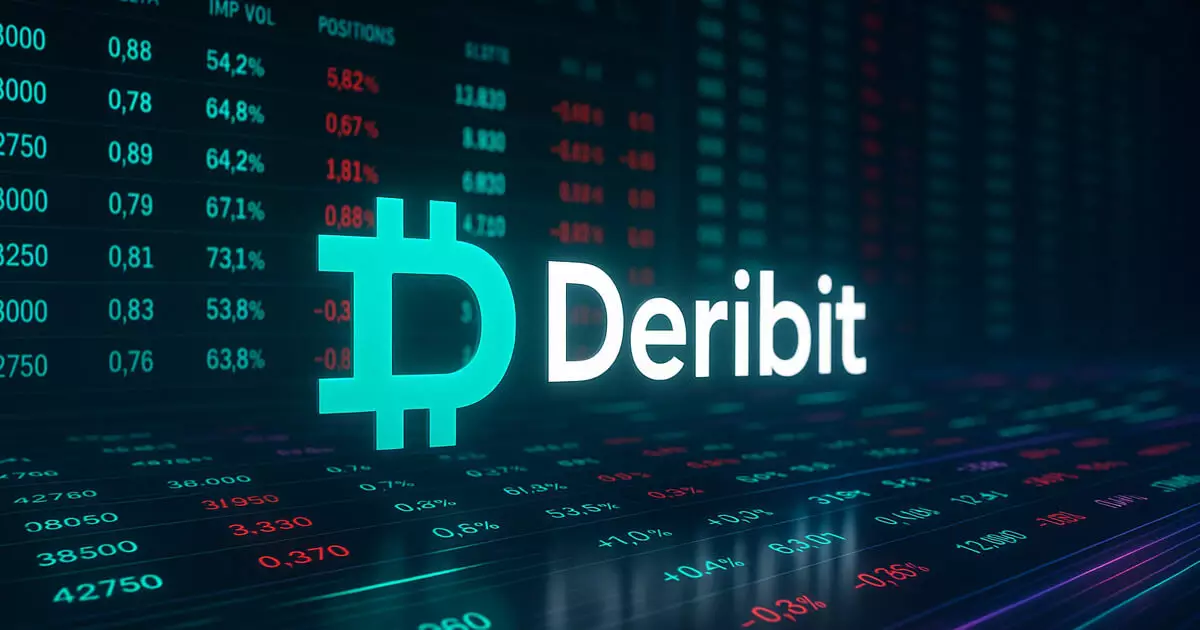In a bold move, Coinbase has struck a deal to acquire Deribit, a prominent crypto derivatives platform, for a whopping $2.9 billion. This acquisition not only marks the largest in Coinbase’s history but also signifies a strategic pivot in the rapidly evolving landscape of cryptocurrency trading. The implications of this merger are profound, as it reflects a desperate yet crucial effort by Coinbase to solidify its position within the crypto derivatives market—a sector that has increasingly become the heartbeat of daily trading volumes in the crypto arena.
What’s significant here is that Deribit has been a market leader, processing a staggering $1.2 trillion in total volume throughout 2024. Its expertise in derivatives positions it as an essential ally for Coinbase, which has been racing against competitors to capture market share and enhance its derivatives offerings. This acquisition creates a pivotal opportunity for Coinbase, allowing it to incorporate spot trading, futures, perpetuals, and options under one comprehensive brand. The integration of Deribit’s sophisticated technology is poised to fortify Coinbase’s capabilities, setting the stage for enhanced user experiences and liquidity.
The Regulatory Landscape: A Double-Edged Sword
However, the acquisition is not without its challenges, particularly when navigating the perplexing world of regulatory approval. Deribit’s Dubai-based entity has navigated the legal labyrinth to obtain a full license from the Virtual Assets Regulatory Authority (VARA), placing it in good stead to continue offering derivatives trading to institutional and qualified investors. For Coinbase, the transfer of this license to facilitate the merger stands as a considerable hurdle.
It’s an ironic twist that the very regulatory framework poised to bring clarity can also act as a chokehold on innovation. The U.S. regulatory environment has oscillated between potential optimism and caution, leaving many crypto exchanges in a state of limbo. Coinbase’s ambitions rest on not only acquiring Deribit but also on maneuvering through looming regulatory frameworks that could either support or cripple its aspirations in a digital economy.
Competitive Dynamics and Market Positioning
Coinbase’s acquisition of Deribit, especially against the backdrop of rising interest from regulatory bodies in Washington, is an aggressive play that could redefine competitive dynamics within the cryptocurrency sector. Other exchanges like Kraken are also pivoting toward a similar strategic arc, having agreed to acquire futures broker NinjaTrader for $1.5 billion. The competition is fierce, and while Coinbase is steadfast in its ambitions, the market landscape remains rife with uncertainties.
The push for acquiring Deribit illustrates Coinbase’s urgent need to scale its global derivatives footprint, which has significantly lagged behind many offshore rivals. By marrying the established infrastructure of Deribit with its own platform, Coinbase aims to expedite its capability to engage professional investors, thereby re-establishing itself as a leading player in a fiercely competitive market.
The broader implications of this acquisition cannot be overlooked. As we witness the consolidation of power within crypto derivatives, questions arise about the impact on market innovation and consumer choice. Whether this deal ultimately benefits the broader ecosystem remains to be seen, but it undoubtedly sends ripples of anticipation across the market landscape.

